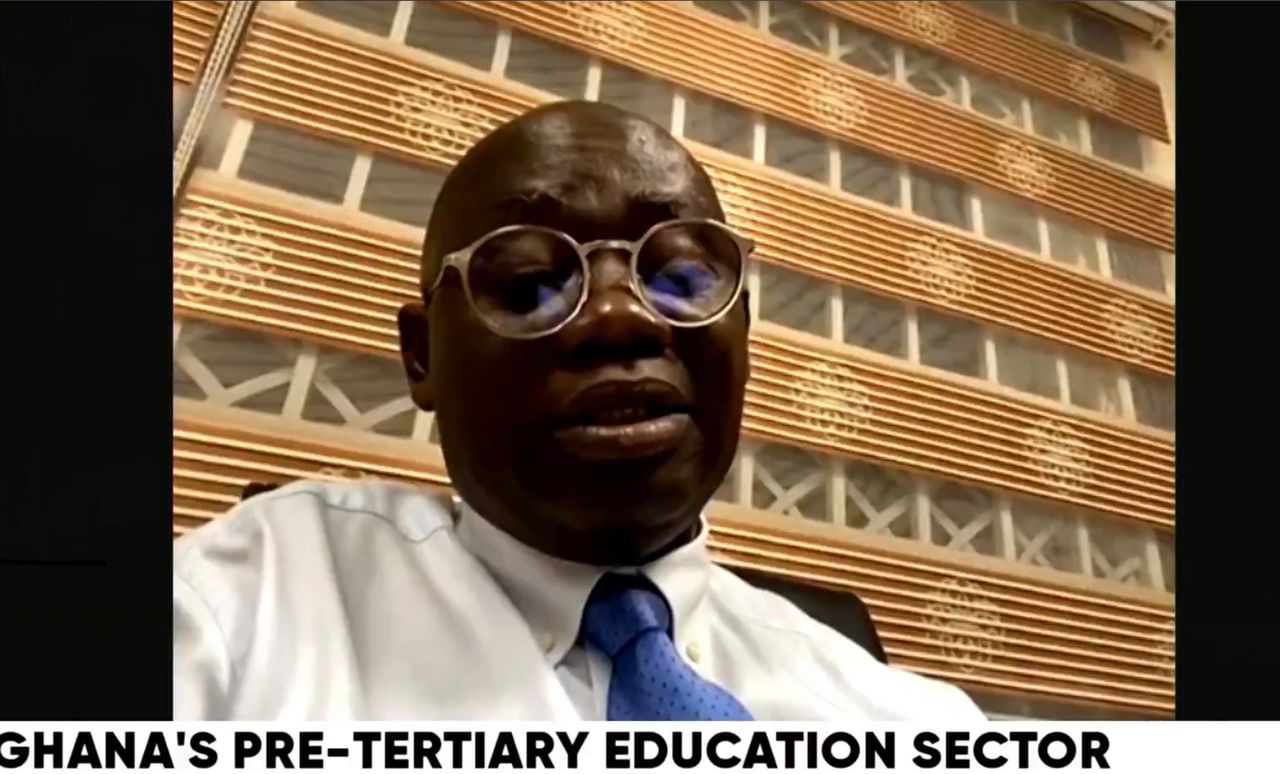
Free SHS: 'We are doing unit cost analysis on each student' - GES discloses
The Director-General of the Ghana Education Service (GES), Prof. Kwasi Opoku Amankwa has disclosed his outfit was undertaking a unit cost analysis on each student under the Free Senior High School policy.
This, he said will help determine which of the cost components the government can relinquish for parents of students to handle, if it comes up for a broader discussion on a possible review of the free SHS policy.
Advertisement
Speaking in a television interview with Joy News on Thursday [July 21, 2022] on the programme Upfront, Prof Amankwa said the review has just been proposed and not really started or ended yet.
When he was asked whether a review of the programme was underway and if it had ended, Prof Amankwa said they were nowhere near a conclusion but a key component of the review is geared at ensuring a cost arrangement that ensures quality.
"I think it is bigger conversation not only for the GES, not only for the Ministry of Education but for the entire country and then, what we will do is that, for us [GES] on our part, we will start with the smaller ideas of looking at aspects of it."
"Today for example, some of the discussions that I have had with my statistics team for them to do something for me, is to do what we call unit cost analysis as far as educating a student is concerned. So you do unit cost analysis especially for the free SHS..., SHS 1 to SHS 3."
“We can do the analysis and then come up and say that, ok, to give... quality education, it will cost this much.
Within that cost, these are the items in the cost. Then we will all put it out there and say this item, we can make do with it, and it will not affect quality, this item, I think we can get parents to pay, this item, let us find some, let the regional or the district offices take care of this.
So when we have done that, and we've all added our inputs into it, then we can all come back and say that for this, the total cost for educating someone in the free SHS, this is it, but we believe that if you take them item by item, we can do this, that etc.
So that at the end of the day, we can all agree that this is the amount that we believe that government should bear. So those things are going on but I believe that once education is not only for GES and Ministry of Education, it will be played into the bigger discussion for all of us to make our contribution,” he said.
[Attached below is a video of the Joy News interview on the Free SHS unit cost analysis by GES]
Will the programme result in cutting out the free senior high school (SHS) programme, or other flagship social programmes and infrastructural projects?
Ghana is at the verge of securing its 18th economic support programme from the International Monetary Fund (IMF) to help stabilise the economy and reboot growth.
This is after the COVID-19 pandemic and the Russia/Ukraine conflict exacerbated the country’s weak macroeconomic fundamentals, pushing the economy deeper into debt, a large deficit, spiraling inflation and the consequences of a depreciating currency.
A fact-finding team from the IMF left the country on July 13 after undertaking a data gathering exercise meant to inform the direction that a possible support would take.
In a question and answer (Q&A) released on July 13, the IMF addressed issues surrounding the government’s request for a programme, including stating its position on the free senior high school (SHS) programme under a possible bailout deal.
On the issue of whether the IMF programme will result in cutting out the free senior high school (SHS) programme, or other flagship social programmes and infrastructural projects, the IMF stated:
"We are still at an early stage in the discussions, but we believe that the free SHS is an innovative policy that needs to be protected."
"In general, IMF-supported programmes seek to boost social spending while encouraging both efficiency and sustainability.
"As discussed above, the IMF-supported programme would aim at protecting the vulnerable and creating conditions for an inclusive growth," the IMF, Ghana office explained.
Free SHS review: 'We are doing unit cost analysis on each student' - GES discloses https://t.co/az2WmrHlDn pic.twitter.com/yfQ88lwHZl
— GraphicOnline (@Graphicgh) July 22, 2022
Writer's email: [email protected]
Follow @enochfrimpong Follow @Graphicgh
- Related articles
- I’ll review Free-SHS within 90 days in office – Mahama
- IMF states position on free SHS amid talks
- 22,000 can’t go to school in spite of free SHS
- IMF support: Free SHS worth saving
- We are afraid of Free SHS
- Who is afraid of free SHS?
- Govt releases GH¢200m for Free SHS



